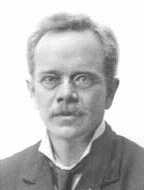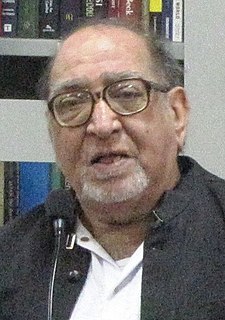A Quote by Ellet J. Waggoner
Let Christians all understand that conscience is between themselves and God alone. They are not at liberty to impose even their freedom of conscience upon another; but by the laws of the kingdom of Christ, they are obliged even to refrain at times from exercising their own freedom, out of consideration for others.
Related Quotes
We will freedom for freedom’s sake, in and through particular circumstances. And in thus willing freedom, we discover that it depends entirely upon the freedom of others and that the freedom of others depends upon our own. Obviously, freedom as the definition of a man does not depend upon others, but as soon as there is a commitment, I am obliged to will the liberty of others at the same time as my own. I cannot make liberty my aim unless I make that of others equally my aim.
I am for liberty of conscience in its noblest, broadest, and highest sense. But I cannot give liberty of conscience to the pope and his followers, the papists, so long as they tell me, through all their councils, theologians, and canon laws that their conscience orders them to burn my wife, strangle my children, and cut my throat when they find their opportunity.
In wanting freedom we discover that it depends entirely on the freedom of others, and that the freedom of others depends on ours. . . I am obliged to want others to have freedom at the same time that I want my own freedom. I can take freedom as my goal only if I take that of others as a goal as well.
A freedom which is interested only in denying freedom must be denied. And it is not true that the recognition of the freedom of others limits my own freedom: to be free is not to have the power to do anything you like; it is to be able to surpass the given toward an open future; the existence of others as a freedom defines my situation and is even the condition of my own freedom. I am oppressed if I am thrown into prison, but not if I am kept from throwing my neighbor into prison.
This spirit of freedom is expanding even where it must struggle against the external obstacles of governments that misunderstand their own function. Such governments are illuminated by the example that the existence of freedom need not give cause for the least concern regarding public order and harmony in the commonwealth. If only they refrain from inventing artifices to keep themselves in it, men will gradually raise themselves from barbarism.
Your constitution guarantees to every citizen, even the humblest, the enjoyment of life, liberty, and property. It promises to all, religious freedom, the right to all to worship God beneath their own vine and fig tree, according to the dictates of their conscience. It guarantees to all the citizens of the several states the right to become citizens of any one of the states, and to enjoy all the rights and immunities of the citizens of the state of his adoption.
The Magna Carta is an early reminder of the crucial difference between freedom and liberty. Liberty is freedom that is unique to humans, it is guaranteed by law. All animals are free, but in a system of humans total freedom is anarchy. Humans have thrived by letting a dominant authority regulate freedom. Liberty is a freedom that the authority has granted or has been persuaded to grant. For centuries, the state and the people have negotiated, peacefully and violently.
To live in accordance with how one thinks. Be yourself and don't try to impose your criteria on the rest. I don't expect others to live like me. I want to respect people's freedom, but I defend my freedom. And that comes with the courage to say what you think, even if sometimes others don't share those views.
The immature conscience is not its own master. It simply parrots the decisions of others. It does not make judgments of its own; it merely conforms to the judgments of others. That is not real freedom, and it makes true love impossible, for if we are to love truly and freely, we must be able to give something that is truly our own to another. If our heart does not belong to us, asks Merton, how can we give it to another?































